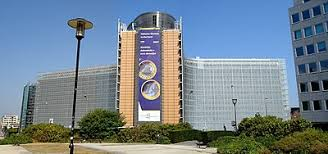The continuing rise of the far right in Europe, as illustrated by the recent EU elections, should give pause to the EU to rethink their misguided efforts to erode free speech protections in pursuit of a safer Internet.
As has been discussed in this blog, the Digital Services Act (DSA) contains provisions that allow the EU to sanction large Internet platforms that do not adhere to EU standards regarding moderation of content that is deemed to be disinformation or hate speech. However, incredibly, neither disinformation nor hate speech are defined in the DSA. Rather, the determination of what speech violates the DSA is left to the judgment of bureaucrats at the Commission.
Soon after the DSA took effect, the Commission launched investigations into content moderation policies at Twitter (X), Meta, and TikTok over their alleged failure to comply with requirements to filter out disinformation and/or hate speech. While Elon Musk and a few other free speech advocates loudly objected to the EU’s efforts, for the most part there has not been much significant backlash.
The lack of concern may result from the fact that quite controversial speech has so far what has been targeted – for example postings that were deemed to support Hamas and terrorism. Few people may be willing to defend such speech, as they risk being labelled as Hamas supporters or as antisemitic. And certainly calls for violence go past the line of speech entitled to protection. But, nevertheless, the wisdom of the regulation free speech contained in the DSA should be scrutinized more fully than it has been.
Those in the political center in Europe appear to be content with letting the EU Commission decide what is permissible speech and what crosses the line into disinformation or hate speech. The Commission’s policies are generally in line with the centrist politics of the EU as a whole. But this does not mean that the suppression of speech allowed under the DSA should be accepted without question. After all, uncontroversial, inoffensive speech usually does not need protection. But citizens of democratic societies should not remain sanguine on the issue merely because their own free speech rights are not immediately threatened.
Allowing unseen government bureaucrats to decide what speech is permissible and what is not sets a precedent that may be regretted in the long run. Responsible persons in government should consider the unintended consequences that could result if the politics of the governmental entity deciding these issues were to take a drastic change.
A law like the DSA, as currently written, could be potent tool for an autocrat (left or right) to use to suppress free speech. History has shown that democracy is capable of producing authoritarian, even tyrannical leaders. Is it wise to enact laws that give a future antidemocratic leader a ready-made device to suppress speech?
If, for example, current trends were to continue, and the EU were to come into control by far right parties with autocratic inclinations, the DSA could be used to force suppression of speech by deeming any speech critical of a political viewpoint as disinformation, when in reality it merely it is critical of certain policies and politicians in power.
As the word “disinformation” is not defined by the law (and there is doubt as to whether it is capable of a legal definition), enforcing the DSA necessarily relies on the subjective judgment of those charged with enforcement. If there is political bias in this process combined with an an agenda to advance or suppress a particular viewpoint, this inevitably will lead to use of the DSA to stifle what should be protected speech.
For those who believe that this is far-fetched, I would ask that you recall when the phrase “fake news” first came into popular discourse. This phrase was used in the media during the US presidential election in 2016 to describe the Russian interference campaign which planted false stories about Hilary Clinton. Soon thereafter, however, Donald Trump appropriated the phrase fake news, and to this day uses it to describe any news story that is critical of himself.
One can imagine what Mr. Trump would do if he were to regain the presidency and there were a law in effect in the US similar to the DSA allowing the government to force censorship of anything that Mr. Trump deemed to be fake news, i.e. disinformation. Does anyone seriously doubt that he would try to use such a law to try to shape news coverage in his favor? Obviously, the US has the robust protections in the First Amendment, but this illustrates how a law like the DSA could be abused by a politician inclined to do so if the courts did not intervene to prevent it.
Traditionally, democratic countries have held principles of free speech to be important regardless of whether or not the speech is popular. But most people do not worry about this issue unless and until their own viewpoints are censored. However, once a government is given the legal power to censor speech on a subjective basis – whether it be because it is unpopular, false, or even despicable – it puts freedom of speech at risk for all of us.

Member discussion: